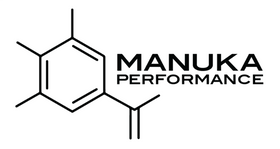Investigating the Impact of Mānuka Honey Supplementation on Dairy Cow Milk Productivity
Introduction
Dairy cow farming is a critical component of the agricultural industry, playing a significant role in providing dairy products to meet human dietary requirements worldwide. Enhancing milk productivity is a primary goal for dairy farmers to improve their economic sustainability. Various factors influence milk yield, including nutrition, health, and stress levels. Mānuka honey, renowned for its potential health benefits, is the subject of increasing interest within the agricultural community. This proposal aims to investigate the impact of Mānuka honey supplementation on dairy cow milk productivity, with the ultimate goal of improving milk yields and overall herd health.
Objectives
-
Evaluate Milk Yield: Determine the influence of Mānuka honey supplementation on the quantity of milk produced by dairy cows.
-
Assess Milk Quality: Examine the impact of Mānuka honey on the quality of milk, including fat content and somatic cell count.
-
Monitor Cow Health: Monitor the overall health and well-being of dairy cows through regular health assessments during the trial period.
-
Determine Optimal Dosage: Establish the optimal dosage of Mānuka honey for achieving the best results in terms of milk productivity and cow health.
Background and Rationale
Mānuka honey is a unique type of honey derived from the nectar of the Mānuka tree (Leptospermum scoparium) found predominantly in New Zealand and Australia. It is renowned for its potent antibacterial and anti-inflammatory properties, which have been studied for their potential benefits in human health. These properties make Mānuka honey a promising candidate for improving the health and productivity of dairy cows.
Dairy cow health is closely linked to milk yield and quality. Various stressors and health issues can negatively affect milk production, leading to economic losses for farmers. Research has shown that Manuka honey may have a positive impact on health conditions, and it has been used traditionally for wound healing and health maintenance. Therefore, there is potential for Mānuka honey to improve dairy cow health and, subsequently, milk productivity.
Methodology
1. Study Design
A randomized controlled trial will be conducted with a sample of dairy cows to assess the impact of Mānuka honey supplementation. The trial will span six months, divided into three phases: a pre-trial assessment, the intervention phase, and a post-trial evaluation.
2. Sample Selection
A diverse group of dairy cows will be selected for the trial, ensuring representation of different breeds and age groups. The sample size will be statistically determined to provide meaningful results.
3. Pre-trial Assessment
Before the intervention begins, baseline data will be collected. This includes milk production records, milk quality analysis (fat content and somatic cell count), and the overall health status of the selected cows. Any health issues will be addressed, and the cows will be separated into control and experimental groups based on their baseline metrics.
4. Intervention Phase
The experimental group will receive daily Mānuka honey supplementation, while the control group will continue with their regular diet. The dosage of Mānuka honey will be carefully measured to determine the optimal level, considering factors such as cow weight and honey concentration.
5. Data Collection
Throughout the intervention phase, data will be collected regularly. This will include:
- Daily milk yield records for each cow.
- Weekly milk quality assessments (fat content and somatic cell count).
- Regular health assessments, including weight, body condition, and overall well-being of the cows.
- Monitoring of any adverse effects or health issues in the experimental group.
6. Post-trial Evaluation
At the end of the six-month trial period, data will be analyzed to determine the impact of Mānuka honey supplementation on milk productivity and cow health. Statistical analyses will be conducted to assess the significance of the results.
Ethical Considerations
The welfare and ethical treatment of dairy cows will be a top priority throughout the trial. All procedures will be carried out with the utmost care and respect for the animals. Cows will be housed in suitable conditions and provided with appropriate nutrition, comfort, and veterinary care. The trial will be approved by the relevant animal ethics committee, and informed consent from the dairy farm owner will be obtained.
Expected Outcomes
This research aims to provide insights into the potential benefits of Mānuka honey supplementation in dairy cow farming. We anticipate the following outcomes:
-
Increased Milk Yield: The experimental group supplemented with Mānuka honey is expected to exhibit a significant increase in milk productivity compared to the control group.
-
Improved Milk Quality: We anticipate that milk quality will improve in terms of fat content and somatic cell count in the experimental group.
-
Enhanced Cow Health: The health assessments are expected to reveal improved well-being in the cows that received Mānuka honey supplementation.
-
Optimal Dosage: The trial will determine the most effective and safe dosage of Mānuka honey for dairy cow supplementation.
Conclusion
The proposed research project seeks to explore the potential benefits of Mānuka honey supplementation on dairy cow milk productivity. Improving milk yield, quality, and overall cow health can significantly impact the dairy industry. If the trial results are favorable, it may lead to a natural and sustainable method to enhance dairy cow productivity, thereby benefiting farmers and consumers alike. Additionally, it highlights the potential of Mānuka honey as a valuable resource in agriculture, expanding its applications beyond human health into the realm of animal husbandry.

